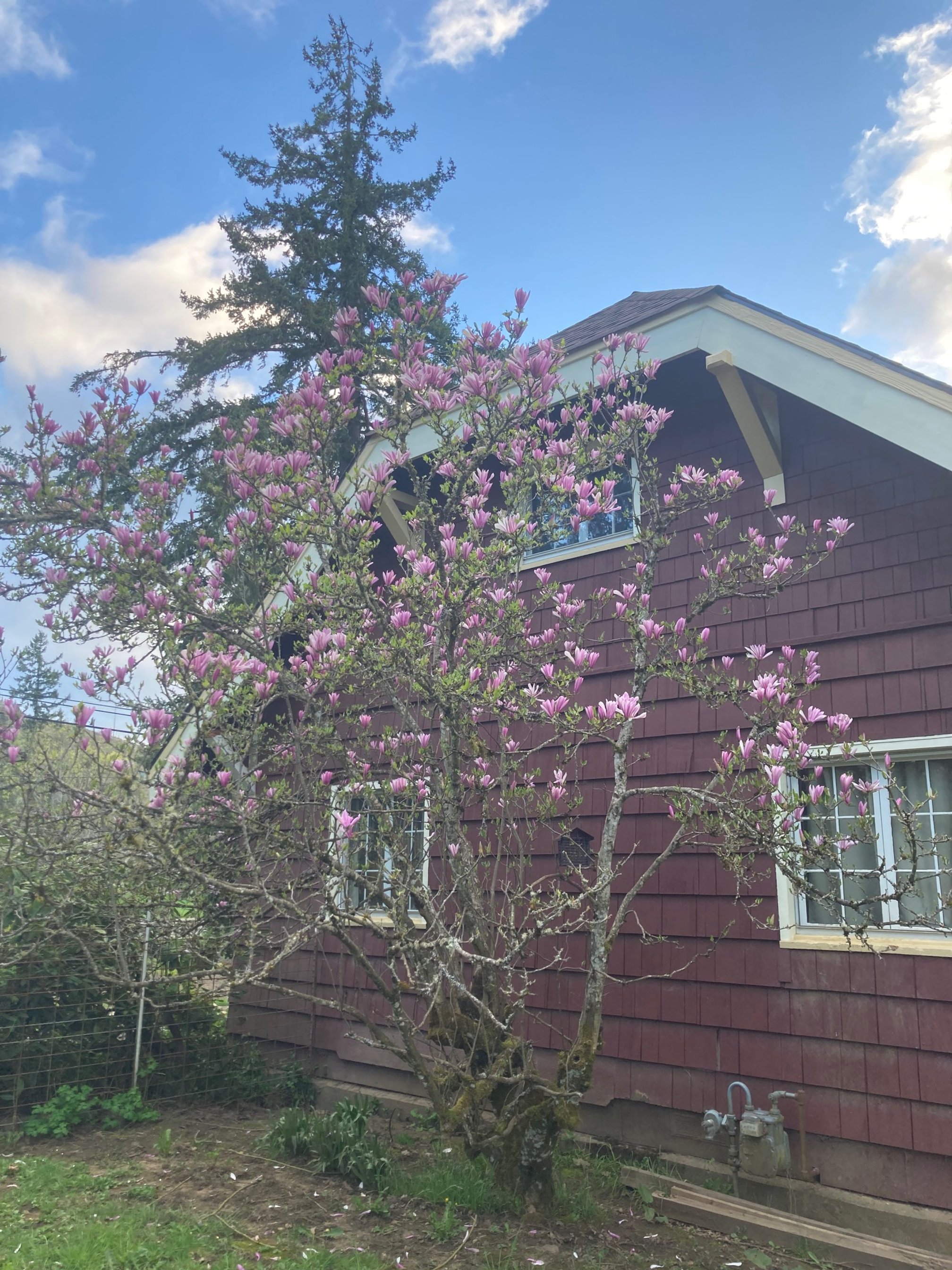A Day in the Life of Mossygoat Farm in Late Spring
If you are looking to support a healthy, small farm that supports the land and environment, what are you to do? The only way to know what you are supporting is to get to know your farmer. Knowing your farmer is important. To those who want to get to know us at Mossygoat Farm, here is a pictorial look into a day in the life at Mossygoat Farm in late spring. April 30th to be exact. Summer on the farm begins on May 2nd. Spring was almost non-existent this year with snow and winter temperatures well into April for the second year in a row. Finally, in the last few days of April, we received sunny warm weather.
There are many words that are used to describe farming practices: organic, no-till, biodynamic, and regenerative are a few of the most popular words. Unfortunately, these are just words and not necessarily indicative of a farming practice that is healthy for the land, people, and the environment. Organic does not mean healthy and furthermore, many farmers who use healthy organic methods cannot claim the name because they opt of the expensive certification process. No-till practices can be taken the extreme and many farms, such as Mossygoat Farm, need to practice low-till or minimum-till practices to maintain the health of their soil. Tilling can be an important part of soil health. Biodynamic is a holistic farming methodology stemming from the teachings of Rudolph Steiner of Waldorf education fame. Biodynamic is certainly an important holistic farming practice but like organic, also requires an expensive certification process and a portion of the profits go to the certifying agency. Regenerative farming is probably the most popular buzz word at the moment but because it does not require certification, it actually is somewhat meaningless. Regenerative farming simply means farming to revitalize the land rather than deplete the soil.
Now: on to the pictures.
The sheep were finally sheared! This year we decided to hire a shearer, Thomsen Livestock Services. We feel this was the best decision for the sheep and for our backs! Hats off to the sheep shearers of the world. Our shearer, Autumn, was a pleasure to work with. This year’s wool will be used for felting soap as well as making ethical no-kill sheep skin rugs.
Not all of the sheep on Mossygoat Farm have quality wool, such as Tuffnut, the Soay/Jacob mix shown below. Being part hair sheep and part wool sheep, he needs shearing, but the wool/hair is not usable for felting. Mossygoat Farm aims to use our resources at hand and wool has many other uses. He has such fun coloring though!
Below is Tuffnut’s wool being used as a mulch on our new raised garden beds. The wool will help keep the soil cool in the heat, warm in the cold, and will help hold water in. It also will biodegrade to help fortify the soil. The pictured plants are Strawberry, Dyer’s Chamomile, and Garlic. All are being raised in homegrown composted soil. Biodynamic farming aims at having no outside inputs into your farming system and this is an excellent example of that.
Yes, Mossygoat Farm does indeed have goats. We enjoy the health benefits of raw goat milk, and we will also be making goat’s milk soap this year. Bluebell had triplets, two of which are pictured below. The third was born prematurely and is in intensive care in the house and is a busy bottle baby. Bell is a first freshener, which means this is her first pregnancy. Triplets are unusual for a first-time doe. But Bell is doing well and is an excellent mother.
New to the farm this year is bees. Although we do not pick up the new nuc (starter hive) until May 14th, we have been busy painting the hive, making the stand, and getting everything set up. Sunshine yellow is such a happy color for a bee hive, don’t you think?
The cherry trees are finally in bloom! Last year’s blooms were destroyed by late heavy frosts and snow so it is exciting to see this tree in bloom again. These are heirloom cherry trees with an estimated age, based on trunk circumference, of about 90 years.
We have two main orchards here at Mossygoat Farm, pictured below is the old orchard featuring apple, cherry, pear, and the most delicious plums. No chemicals, including organic, are ever used on the Mossygoat orchards. We like to let nature take its course. All the trees below are pretty hardy. The sheep even mow the grass for us.
The lemon balm, Melissa officinalis, is back and growing well. This powerful nervine grows like a weed here on the farm. And we like our weeds! Look for lemon balm tea and tincture later on the year. Lemon balm can help with nerve pain as well as aiding in calming the nervous system. Lemon balm makes an excellent tea to drink before bed. This lemon balm still needs to grow a bit before harvesting.
And last but not least, our beautiful Magnolia is in bloom. The twice a year blooms always bring so much joy.
We hope you enjoyed the tour around the farm.
To celebrate the beginning of summer tomorrow (yes, it really does start on May 2nd despite what the American calandar says), our flower essence of the month is Periwinkle. Periwinkle helps you move forward if you are feeling stuck. Periwinkle also will help you see the magic in your life that already exists. This is such a magical time of the year, and Periwinkle highlights this. For the merry month of May, the Periwinkle flower essence will be 20% off.









